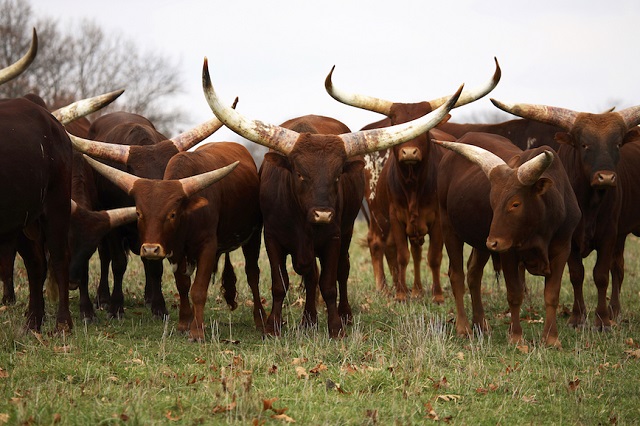
The Sunday News

Judith Phiri, Sunday News Reporter
90 percent of cattle in Zimbabwe is now owned by small holder farmers as communal farmers are transforming from peasant farming to commercialized beef cattle production.
In a Twitter post by the Beef Enterprise Strengthening and Transformation (BEST) project, one of six projects that are supported by the 40 million Euros funding from the European Union (EU) under the Zimbabwe Agricultural Growth Programme (ZAGP), said observations show that 90 percent of cattle is now owned by small holder farmers.
The project which seeks to create a robust, competitive beef value chain that promotes enhanced trade, employment creation, food security, and inclusive green economic growth by 2023 and is targeting 24,900 small to medium scale beef cattle producers. Has also been making progress in transforming communal farmers from peasant farming to commercialized beef cattle production.
In an interview, BEST policy advocacy specialist Mrs Fortune Kachidza said they are constructing main and satellite Cattle Business Centers (CBCs) to ensure that communal farmers are transformed to commercialized beef cattle producers.
“The BEST project interventions are private sector driven, an initiative done in order to sustainable and commercialize the beef value chain. Currently the project is constructing 10 main and 50 satellite Cattle Business Centers (CBCs) across Zimbabwe’s rural areas which are owned by the community but managed by private sector companies,” said Mrs Kachidza.
She added that the CBC is a livestock agribusiness hub with supporting infrastructure, where farmers can access extension, bulling, artificial insemination, input and output marketing, financial services among others.
Mrs Kachidza added that CBCs came as a result of the challenges being faced by most small holder farmers.
“Access to formal cattle markets is one of the major bottlenecks facing small holder farmers to unlock the value of their cattle. Because of CBCs, farmers are now able to add value to their cattle through pen fattening and use of improved high nutrient feed, hence they will be profitable by selling their animals at lower transaction costs as the markets are now within farmers’ proximity,” she said.
She also highlighted that in collaboration with AGRITEX they were also encouraging farmers to grow highly nutritious fodder crops such as velvet beans, sunhemp, forage sorghum, sabi panicum and rhodes grass among others.
“The concept of growing own farm feed for cattle is largely done by commercial farmers, while small holder farmers depend on natural veld for feeding their cattle. Over the past years natural grazing lands have become smaller in size and of poor condition because of overpopulation and lack of management among others,” said Mrs Kachidza.
She also highlighted that the number of hunger induced cattle deaths has been increasing, hence the project has pioneered growing of fodder crops in all its 10 districts. During 2019/20 agriculture season, the project procured seeds and basic inputs such as fertilizers and set up fodder demonstration plots in Makoni, Buhera, Mt Darwin, Shurugwi, Kwekwe, Gokwe South, Chiredzi, Mwenezi, Umguza and Lupane.
Over 100 selected lead farmers grew fodder crops such as velvet beans, sunhemp, katambora, rhodes grass, sabi panicum, cow peas, forage sorghum and lab lab.
Mrs Kachidza said: “The demonstration plots were used as Farmer Field Schools where other cattle producers received practical illustrations of good agricultural practices in the growing of fodder crops. In addition, they were used as seed banks to harvest fodder seeds which can be distributed to other farmers who are being mentored by the pilot lead farmers. In this coming season, through this multiplier effect, many more cattle producers will grow fodder crops.”
Moreover, she added that the project is transforming small holder cattle farmers from a subsistence mindset to a commercial mindset, as most small holder farmers were ignorant about caring for their livestock.
She also noted that cattle farmers now understood the importance of selling stock to buy hay, cattle survival meal and dipping chemicals to save the rest of the herd.
“Traditionally cattle are valued as a symbol of wealth, however BEST project has sensitized farmers to sacrifice an animal to save the rest of the herd. Currently small holder farmers are buying hay bales from irrigated pastures in Masvingo to feed their cattle during this lean season. 85 hectares of irrigated pastures have been established in Masvingo and Matabeleland. As a result, availability of livestock feed for sale to ensure all year feeding of cattle is now possible,” she said.



